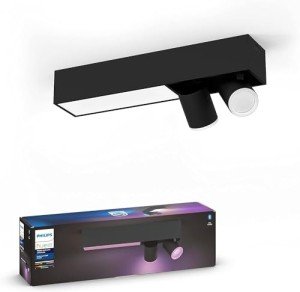12 Companies Leading The Way In Buy Bathroom Lighting UK
A Comprehensive Guide to Buying Bathroom Lighting in the UK
When it concerns developing or refurbishing a bathroom, lighting is frequently an afterthought. However, the best lighting is vital for performance, security, and looks in this intimate space. In the UK, a range of alternatives are available for bathroom lighting, ranging from ambient lighting to task lighting, and accent lighting choices. This guide will explore the different types of bathroom lighting readily available in the UK, what to think about while purchasing, and some often asked concerns to assist house owners in making notified choices.
Kinds Of Bathroom Lighting
1. Ambient Lighting
Ambient lighting is the primary source of light in any bathroom. It supplies overall lighting and creates a comfortable atmosphere.
- Ceiling fixtures: Flush installs or enclosed fixtures that offer broad illumination.
- LED panel lights: Recessed or mounted choices that offer a modern look.
2. Task Lighting
Task lighting is essential for carrying out specific activities in the bathroom, such as shaving or applying makeup.
- Vanity lights: Mounted above or next to mirrors to provide appropriate brightness.
- Downlights: Adjustable fixtures that can target particular areas, such as sinks or counters.
3. Accent Lighting
Accent lighting adds a decorative component and highlights architectural functions, art work, or plants in the bathroom.
- Wall sconces: Decorative fixtures that include character and can be put at various heights.
- LED strip lights: Flexible and versatile, positioned under cabinets or along racks for a modern touch.
4. Decorative Lighting
Decorative fixtures serve both function and design. Buy Wall Sconces UK can be a focal point in your bathroom style.
- Chandeliers: Ideal for larger bathrooms, providing beauty and beauty.
- Statement pendant lights: Uniquely designed lights that can improve the decoration.
5. Natural Lighting
While not a specific fixture type, natural light can boost the bathroom atmosphere and decrease the requirement for synthetic lighting.
- Skylights: Provide innovative natural light services.
- Windows: Ensure personal privacy while using sufficient lighting throughout the day.
Table: Key Features of Bathroom Lighting Fixtures
Lighting Type
Function
Style
Placement
Energy Efficiency
Ambient Lighting
General lighting
Numerous designs
Ceiling fixtures
Moderate to High
Job Lighting
Specific tasks (e.g., makeup)
Modern to traditional
Above or next to mirrors
Moderate to High
Accent Lighting
Emphasizes, design
Decorative styles
Walls or underneath shelves
Moderate
Decorative Lighting
Aesthetic appeal
Distinct styles
Central points in the room
Low to Moderate
Natural Lighting
Daylight source
N/A
Skylights or windows
N/A
Factors to Consider When Buying Bathroom Lighting in the UK
1. Security Standards
In the UK, particular safety guidelines should be met for bathroom lighting setup. Try to find lighting fixtures that comply with the IET Wiring Regulations (BS 7671) and are ranked for use in wet or moist locations. This is important for fixtures put near sinks or showers.
2. IP Ratings
The Ingress Protection (IP) ranking indicates how resistant a fixture is to moisture. Restrooms normally need lights with an IP score of a minimum of IP44 to guarantee security from splashes of water.
- IP20: Not suitable for restrooms
- IP44: Suitable for zone 2 areas
- IP65: Suitable for zone 1, can be used in shower enclosures
3. Design and Aesthetics
Consider the total design of your bathroom while selecting lighting. Whether traditional, modern, or minimalist, your fixtures need to complement the decoration.
4. Brightness and Bulbs
Think about the type and brightness of bulbs. LED bulbs are popular for bathroom lighting due to their energy performance and durability. Select warmer tones for a relaxing atmosphere, and ensure appropriate brightness, normally determined in lumens, especially around mirrors.
5. Adjustability
Consider adjustable fixtures which enable flexible lighting. Dimmable options can help develop the right atmosphere while also increasing functionality.
6. Budget
Set a clear budget plan ahead of time. The rate of bathroom lighting differs extensively— from affordable fixtures to designer alternatives. Make certain to consider setup if required.
7. Eco-Friendliness
With increasing awareness of ecological impact, think about environmentally friendly alternatives. LED lights take in less energy and have longer life-spans compared to traditional bulbs.
Frequently Asked Questions (FAQs)
1. What is the best lighting for a little bathroom?
In small restrooms, it is recommended to utilize bright ambient lighting combined with task lighting around mirrors. Wall sconces or mirror lights can conserve area while supplying necessary illumination.
2. Can I use standard lights in the bathroom?
It is essential to utilize lighting fixtures particularly designed for restrooms due to moisture and humidity. Ensure they have sufficient IP scores for safety.
3. How high should I install bathroom sconces?
Bathroom sconces should ideally be installed around eye level, usually about 60-66 inches from the floor to successfully light up the face without casting shadows.
4. What color temperature is best for bathroom lighting?
A color temperature level between 2700K to 3000K is more suitable, as it supplies warm, inviting light that complements skin tones and creates a peaceful environment.
5. Is it necessary to have a dimmer switch in the bathroom?
While not important, dimmer switches can improve flexibility, permitting users to adjust lighting levels according to jobs and activities, which can be particularly beneficial in a multi-functional area.
Selecting the ideal bathroom lighting in the UK needs careful factor to consider of security, function, and design. By comprehending the different types of lighting, examining your needs and choices, and sticking to safety requirements, property owners can produce a well-lit, welcoming bathroom space. Armed with understanding and awareness of current alternatives, anybody can illuminate their ensuite oasis magnificently.
